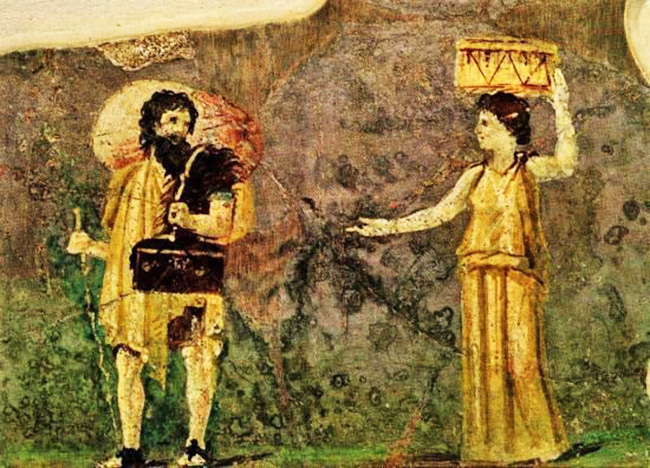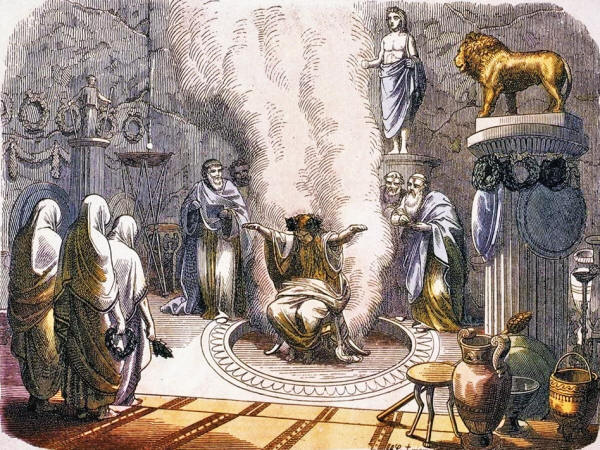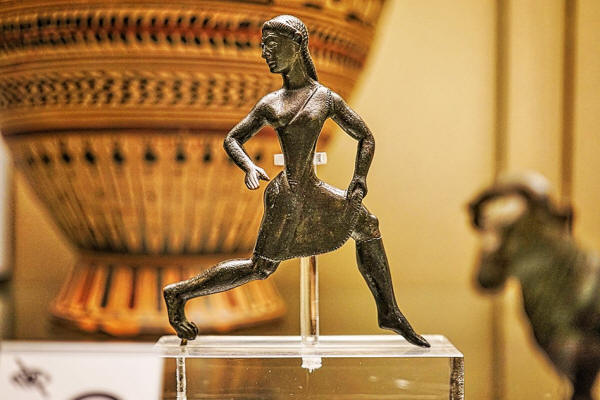|
from
ClassicalWisdom Website
Professor Nancy Sherman recently stated that contemporary forms of Stoicism have become an industry - And a mega-industry at that.
While many of these forms have little to do with Stoic philosophy, she is right. It is also clear that most modern-day popularizers and academics linked to Stoicism happen to be men (in fact, we are two men).
In extreme cases, fans of popularized Stoicism even champion the misogynist idea that only men can be virtuous (within the Stoic community we call this group the "Broics").
Yet the ancient Stoic philosophers themselves, such as,
...make it clear that the ability to act virtuously is not contingent on one's sex or gender identity. Musonius, in particular, advocated for women to be taught philosophy so that, like men, they too could progress towards a life well-lived.
He did so because he believed that women had received the same cognitive abilities and natural inclinations towards virtue as their male counterparts.
Perhaps unsurprisingly, given Musonius' views, the feminist philosopher Mary Wollstonecraft was influenced by Stoicism. She likewise emphasized the overarching goal of, and human capacity for, a flourishing life.
Like Musonius, she believed that all humans could learn to act rationally and morally. The Roman historian Plutarch and the biographer Diogenes Laërtius also highlight that the quest for virtue doesn't only concern men. Plutarch documents the stories of the powerful Spartan queens,
His point was to illustrate the fact that these women led by example when attempting to bring about much needed socioeconomic and land reforms in Hellenistic Sparta. Similarly, Diogenes Laërtius dedicated time and effort to recording the story of the Stoic founder Zeno of Citium's philosophical foster-mother and Cynic philosopher, Hipparchia. ii
Diogenes also highlights the fact that Stoic philosophy owes its very existence to the wisdom of the Oracle, one of the most powerful of women's voices in all of history. iii
Zeno spoke with the Oracle, and her words inspired him to read the wise texts of the ancients, which then led him to teach what became Stoicism, on the Painted Porch (Stoa Poikile). The fact that there is so little ink dedicated to any of these women in contemporary Stoic books, blogs, and social media posts suggests, to us at least, a lack of knowledge, not a lack of interest.
So, let's play our part in changing that.
The Oracle at Delphi
What did the Ancient Stoics say about women? In his Discourses 3.1, Musonius Rufus very explicitly states that there is no difference between men and women in terms of their ability to act rationally and virtuously:
He explained, in the very same lesson, the value of being a philosophically educated woman.
Specifically, he stated that a woman who has studied philosophy is a better manager of the estate and is more likely to be happy and self-reliant.
He also labeled women who truly understand philosophy as "philosophers," not simply as "educated."
Clearly, Discourses 3 lies in direct contrast to any contemporary claims which hold that Stoicism is 'only' for men, or that it is only of value if you happen to be a man...!
In Discourses 4.3, Musonius justifies his claim for equal education:
It isn't just Musonius who expects women to receive a philosophical education.
Epictetus too, albeit in a much more matter-of-fact tone, also makes it clear that women (and men) should be taught philosophical principles, v if they are to understand what constitutes an "appropriate act" (kathekonta).
He evidently sees no reason why women cannot be philosophers.
Seneca also shares similar sentiments when it comes to the education of his mother.
Far from wishing to deny her a good education, or thinking that it was inappropriate for her to have obtained one, he writes in a public letter to her (Consolation to Helvia 17):
Of course, we should highlight that these examples of discussions about women are being held entirely by men.
It is important that we acknowledge this if we are to be intellectually honest about Stoicism's past and work towards equality in the future.
We aren't raising these examples to suggest women in philosophy need the validation or approval of ancient philosophers, but rather to dismiss those who would invoke these same philosophers for sexist and exclusionary reasons. vii
Bronze statuette
of a young Spartan woman Queen Agiatis' Story Agiatis, the 3rd century BCE Spartan Queen, plays a significant role in Stoicism's history.
Yet, while the Sparta of Hollywood holds center stage amongst contemporary Stoic groups, she is barely mentioned. This is despite her role in standing up against a murderous oligarchic regime, and passing socioeconomic and land reforms in the name of justice.
We highlight this irony in our book 'Being Better - Stoicism for a World Worth Living In,' for what could be more Stoic or Spartan than having the courage to take the fight to the powerful, even at great personal cost? Agiatis accomplished all this when her world was turned upside down following the murder of her husband, King Agis IV, and her in-laws by Leonidas II.
This left Agiatis with little option but to marry the son of Leonidas II, the future king Kleomenes III.
As we explain in our book:
We told Agiatis' story precisely because it is such a strong example of Stoicism.
It also proves the ancient Stoics claims that an educated woman who courageously stands up for justice is an asset to her community, her family, and herself.
New Female Stoic Stories We feel that it is particularly appropriate to briefly mention how women are contributing to Stoicism and moving the philosophy forward today.
All these initiatives highlight the fact that women are increasingly at the forefront of developing practical tools that are rooted in Stoic philosophy.
In short, Stoic women are finding their voices and it's about time they were heard.
References
|




